“The business started in Columbus, Ohio with my great-grandfather and his brother. They were working at a shoe factory until it went bankrupt during the Great Depression. Footwear was what they knew and grew up with, but ended up with nothing.
Then they heard about this old shoe factory in Nelsonville, Ohio that had closed at the same time and saw an opportunity. They moved their families from Columbus to Nelsonville. Route 33 didn’t exist yet, so it was a much more difficult process to get down there. I don’t know if it’s true or not, but my dad tells me that when they got here, my great-grandfather’s wife said, ‘If this is Nelsonville, I don’t want to stay.’ But they stayed to open and work in that shoe factory where they began making boys’ leather-bottom shoes.
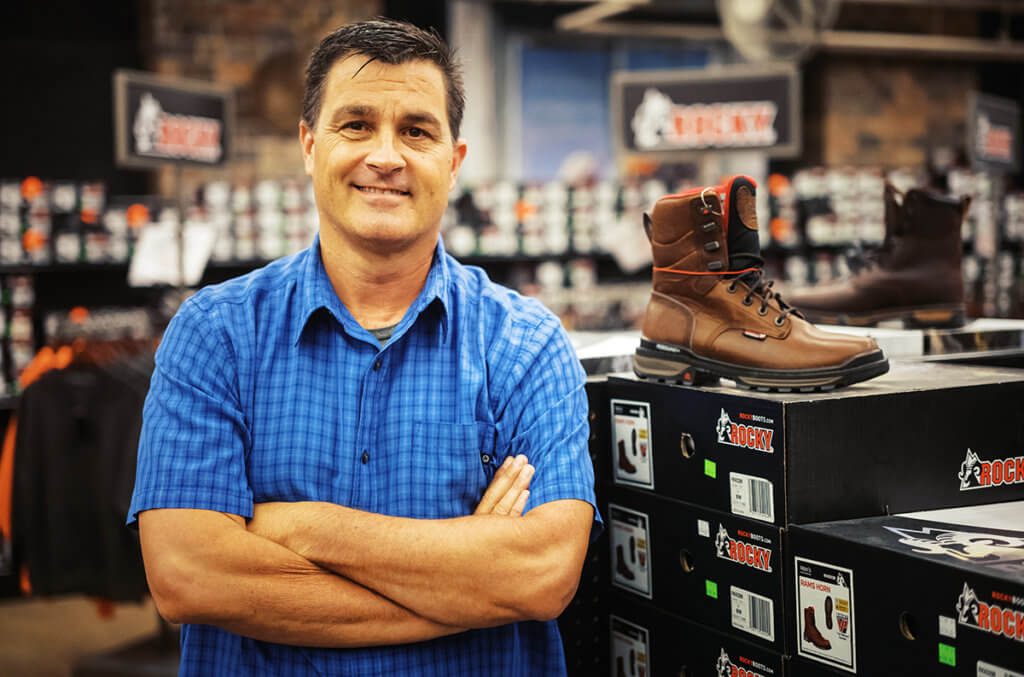
In 1932, it was a different time. They needed a job. They needed to work. They had just lost their jobs in Columbus so they said, ‘Let’s go start our own factory.’ The building was here, there was some equipment there, and it allowed them a pretty easy start-up. I think they were just like, ‘Look, we have to do something, and this is what we know how to do.’ From that, they ended up making shoes for companies like JCPenney and Sears.”
“I grew up in and around the shoe factory, a lot like my grandpa, learning how to make shoes. I have pictures on my wall of him working in the factory when he was 12 or 13 years old.
He married my grandmother and they had five children, all born and raised here in Nelsonville and all of whom ended up working in the family business. My dad was the first to really get into it. He left Nelsonville to go to school in Italy to learn how to design shoes. My dad says grandpa gave him a one-way ticket and said, ‘When you graduate, call me and I’ll mail you your ticket back.’
He saw the value in the factory and he loved it. He grew up in that factory.
After my dad got his ticket back home, he got into the leather business working for a leather tannery. Grandpa told him the shoe-making business in the United States was dying. He said the factory wasn’t going to be there forever, he should go and take care of his family and do what he needed to do. He went to work for a leather manufacturing company in Wisconsin.
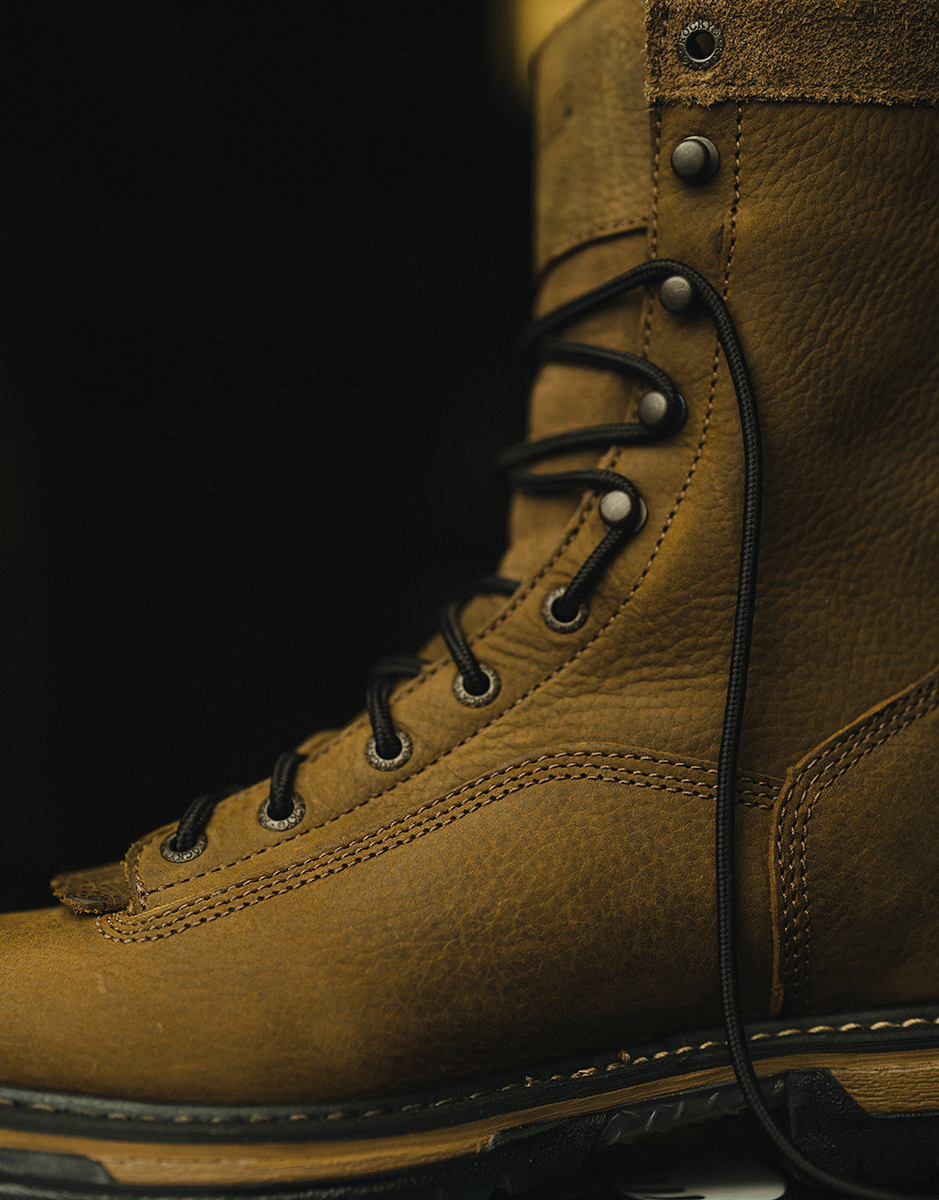
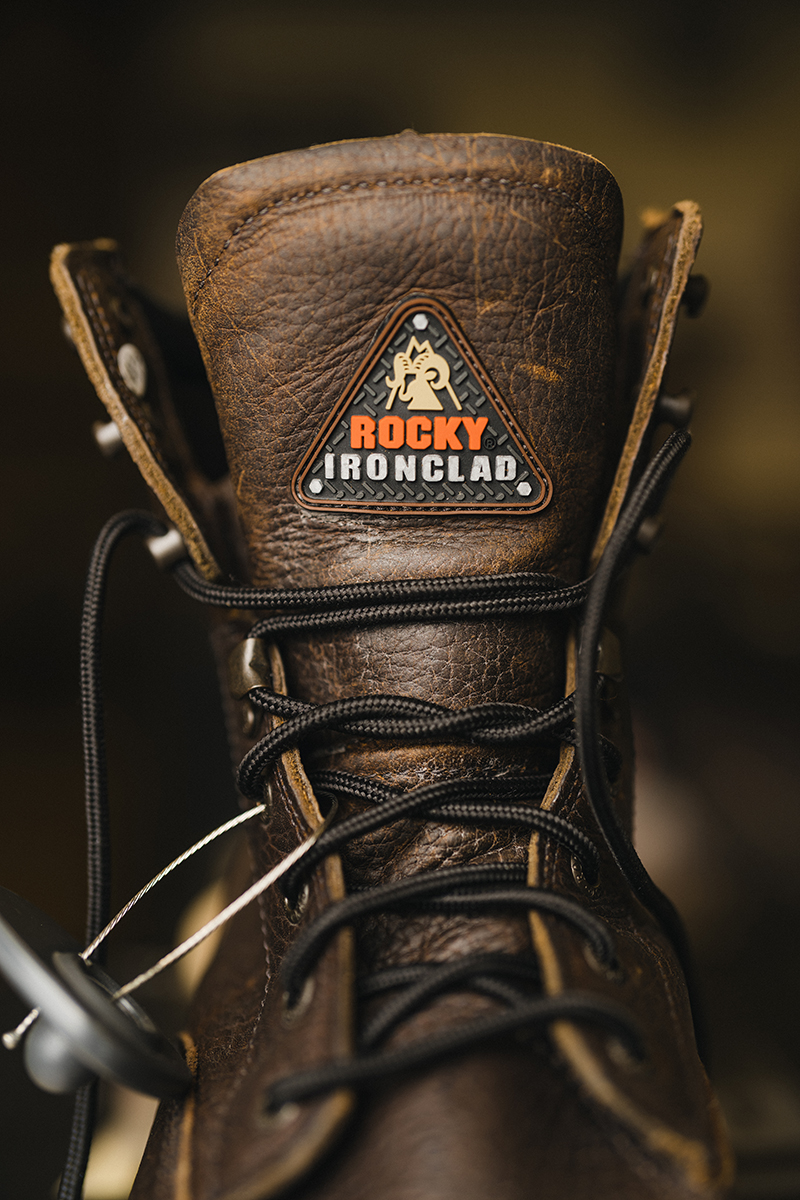
The factory here in Nelsonville was sold to a company out of Lancaster, Ohio. My great-grandfather and his brother just didn’t see the future in it and so they sold it. My grandpa still needed a job, though, so he stayed on as an employee at the factory. Sometime in the early 1970s, that company out of Lancaster was going to close it and my grandpa offered to buy it back.
He saw the value in the factory and he loved it. He grew up in that factory. I think he would have preferred his father and uncle hadn’t sold it when they did, but he was in no financial position to buy it from them and they wanted out. So he stayed on, you know, continued to make shoes for the company out of Lancaster, and when the opportunity came up, he said, ‘I’ll buy it.’
My dad decided to quit his job with this leather company in Wisconsin and move us from Wisconsin back to Nelsonville. I must have been 3 or 4 years old. My dad told me that when he got home to Nelsonville, grandpa looked at him and said, ‘What the hell are you doing here?’ And my dad said, ‘You told me you bought the company, so I’m coming home to work for you.’
“The factory was still doing private label shoes for JCPenney and Sears, but the margins were getting smaller and smaller. They decided they needed a brand of their own because without making their own shoes, they were probably going to fail.
And so the Rocky brand was born.
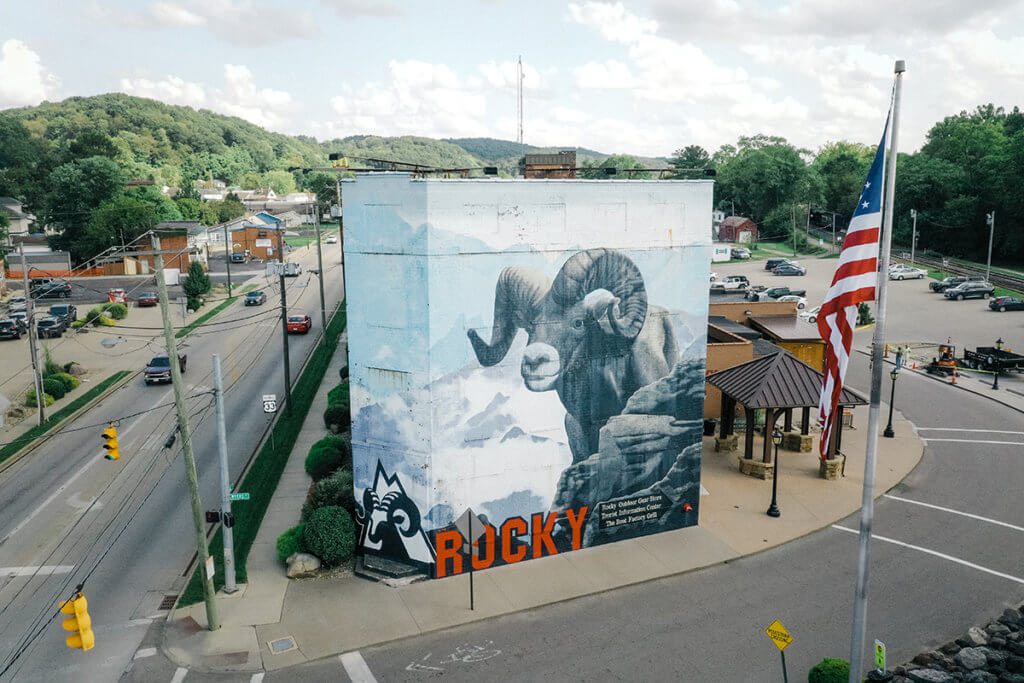
The name was inspired by my dad’s time spent studying in Italy. He had designed a boot there and the leather he used was called ‘Rocky.’ He thought that was a cool name. The first boot was an oblique toe, which is a square-toe, rugged outdoor work boot, and that boot was the beginning of Rocky.
Nelsonville has a lot of heritage and a lot of meaning to me, and my dad is still very involved.
They soon attended a show called the Shot Show, which is a shooting, hunting, and outdoor trade show, and things started to take off. We got away from the private label stuff and focused on the brand of the boots and the products and the marketplace. There was a long time when we just couldn’t even keep up with production.
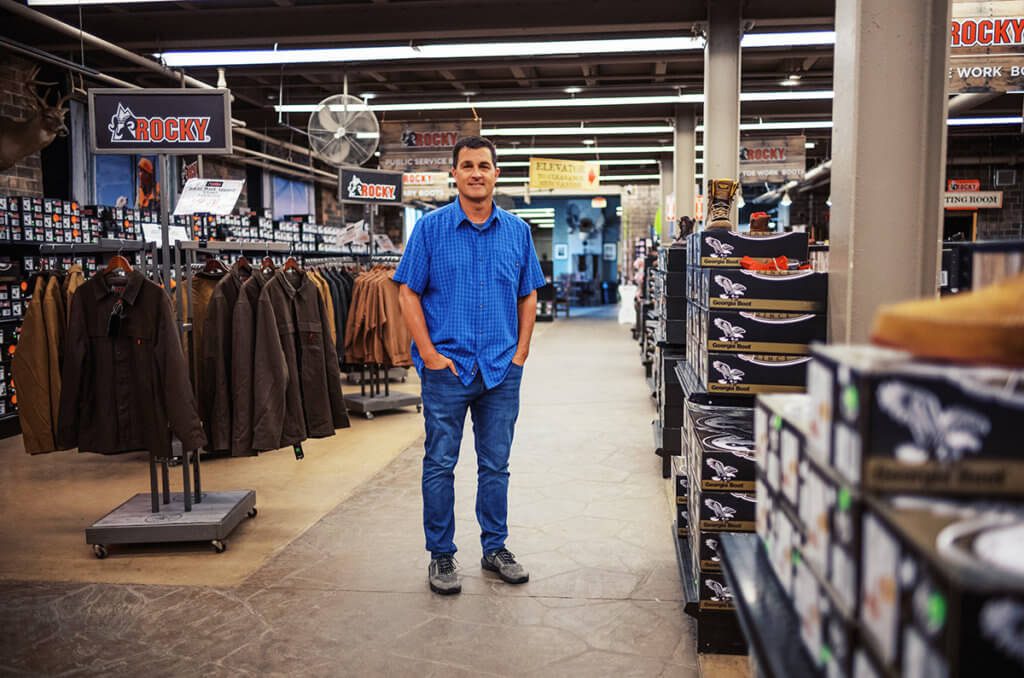
I was a salesman. I can remember, we would go out on the early buy, which would be like January, February, March, and April to get bookings for orders to ship that fall. And by April, they would call and say, ‘Hey, we’re all booked up. We can’t sell anymore. Stop selling boots.’ That was pretty crazy.
We eventually had to close our shoe factory here in Nelsonville. That facility today is part of our office space. We also have a retail store here in Nelsonville. But we actually employ more people here today and the tax dollars are higher than when the factory was here so we’re still a big part of the community. It’s very important to us. Nelsonville has a lot of heritage and a lot of meaning to me, and my dad is still very involved.”
“I took over as CEO in 2017. My family has been making shoes for generations. I have a real passion for this business, and I believe the people here today have a real passion for it.
If you don’t have a passion for what you’re doing, then why are you doing it? Passion doesn’t mean you don’t have bad days, it doesn’t mean that things aren’t gonna be rough. But having a passion for what you do is the foundation. You have to love, in some way, what you do.
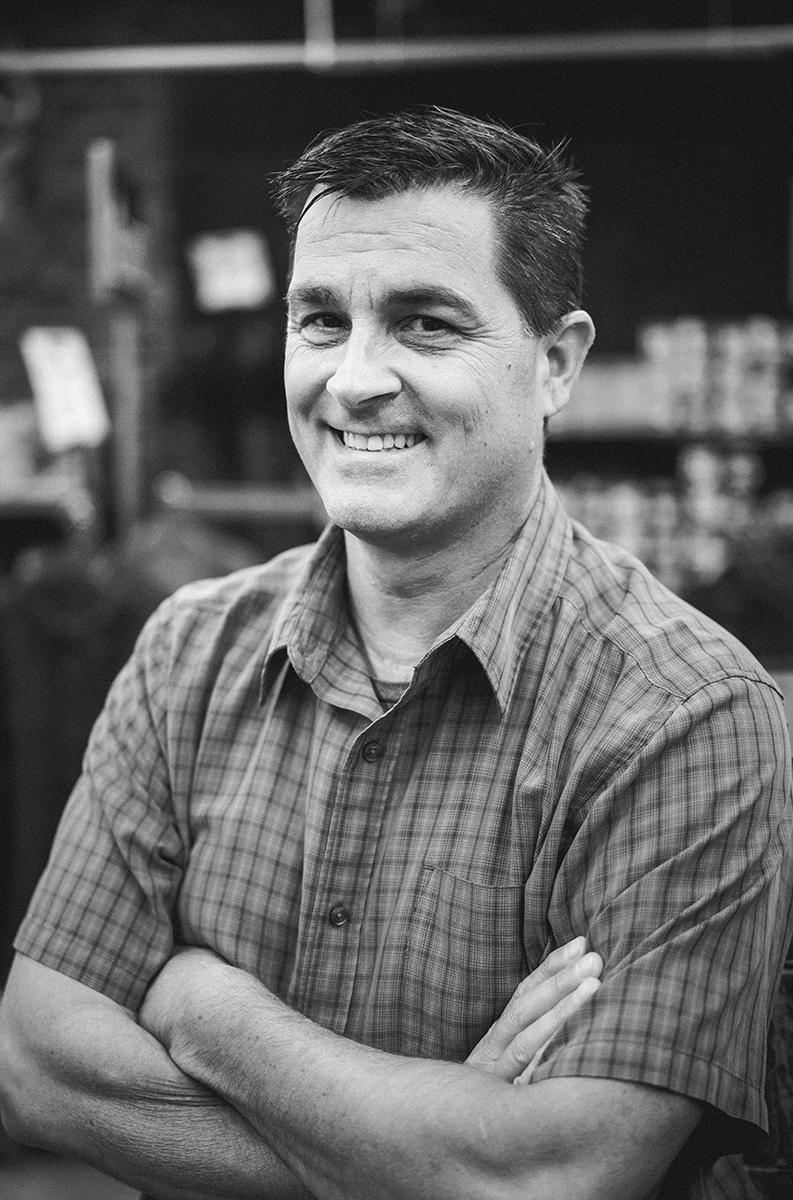
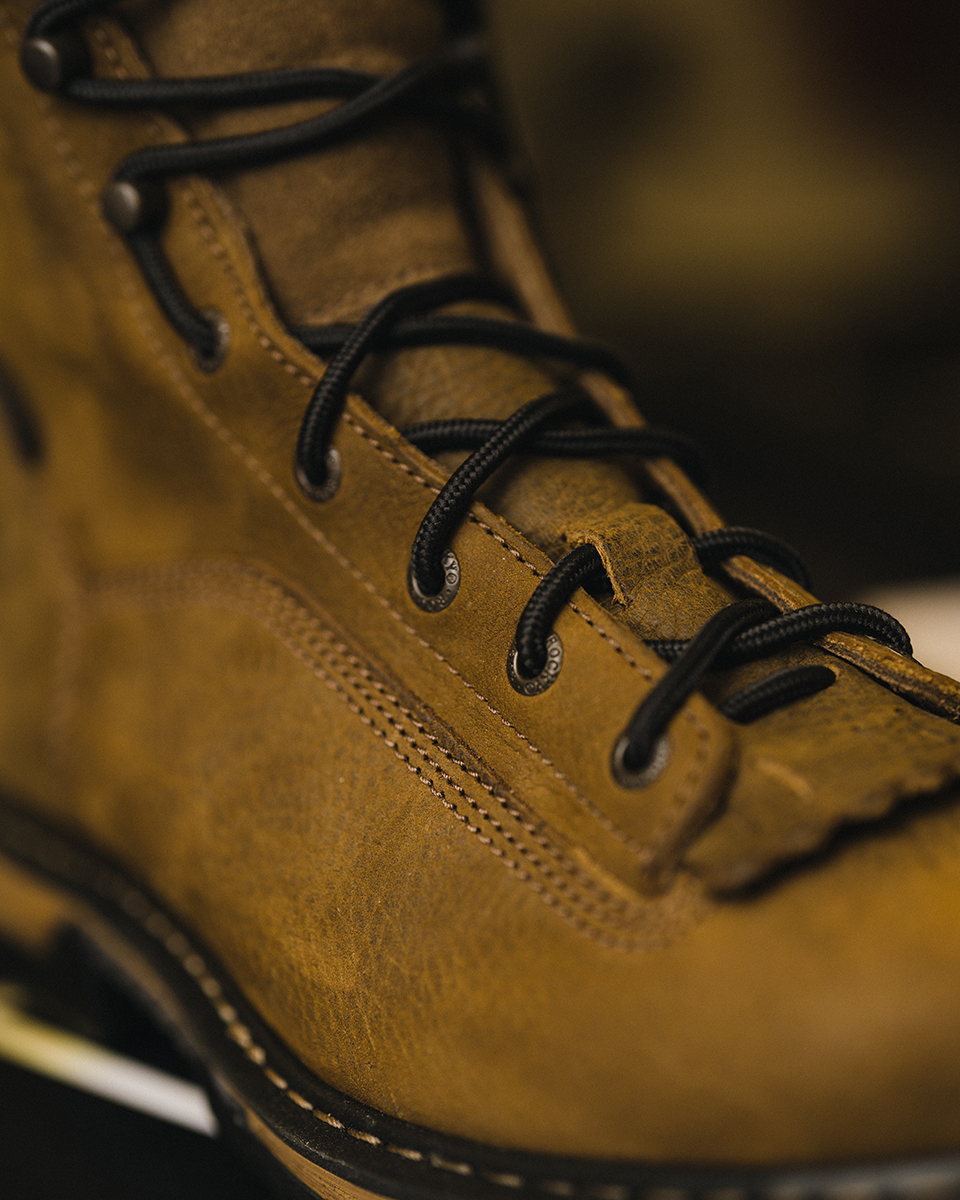
The product has to be right, use great technology, it has to fit well, it has to perform well. But even if all that stuff is right, if the company’s core values and culture aren’t good, you’re not going to be able to get any of that out there. Nobody’s going to want to make it, none of the employees are going to be passionate about it, and employees are the ones who make things happen.
We were going through a change in leadership in 2016 and 2017. I said, ‘We have to start with the culture. We have great products, we have great product development people, we have great marketing people, we have great sourcing people, we have great partners in our facilities and our own factories and our sourcing factories.’ We needed a good culture with good values, and so we created them. Some of those values came from my dad, my grandpa, and my great-grandpa. One of those core values is that our associates are the foundation of this company.
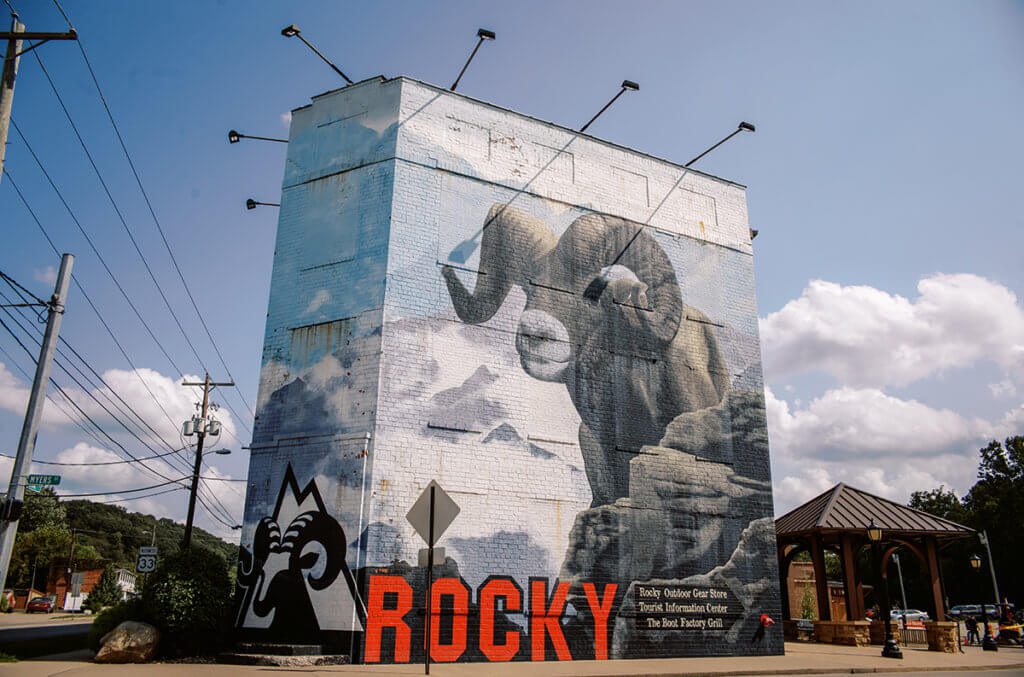
Those are the values our business is based on here. You have to show up. You have to do the things that are going to help the company move forward. And I ask everybody to put the company first. If we do that, and the company is successful, we’ll be rewarded.”
“There was a time in my life when I was younger when I wanted to get out of southeastern Ohio. You might feel that way about your hometown, too, until you get out in the world and see that there are problems everywhere. I don’t care if you’re in New York City or San Francisco or Atlanta or Chicago or a small town in Alabama, there are problems everywhere. So, in my opinion, you have to figure out where you want to be instead of running away from problems.
From a company standpoint, the better, the healthier we can make the company, the better it’s going to help the community.
I’ve been to San Francisco, Atlanta, Tampa, Macon, and Georgia. I’ve been places. But I want to help make a difference here. This place is my home. I like it here. I like the small-town feel. I like being able to communicate with the local teachers and have something to do with local politics. And I think I can make a difference. I think I can actually help. From a company standpoint, the better, the healthier we can make the company, the better it’s going to help the community.
Southeast Ohio for me was a great place to grow up. It’s still a great place and we’ve made it our home. We’ve work to do, but we’re here to keep trying to make it happen.”
—Jason Brooks, President and CEO of Rocky Brands
Nelsonville, Athens County
#WeAreOhioSE




